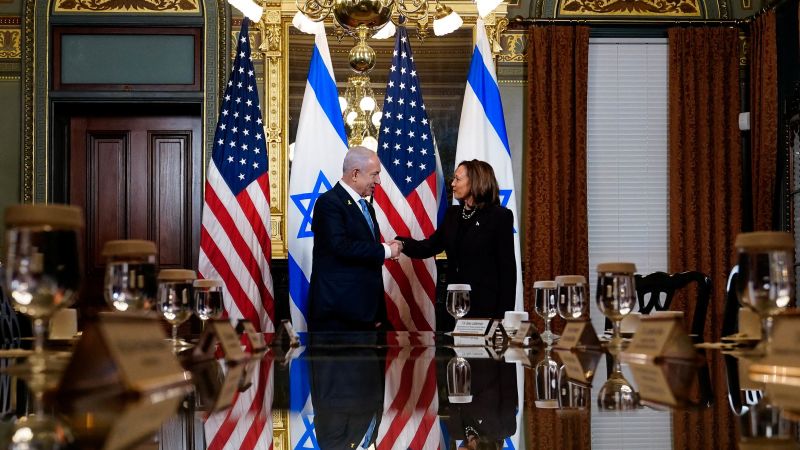Vice President Kamala Harris has met with over 150 world leaders since taking office, but her meeting with Israeli Prime Minister Benjamin Netanyahu in July stood out as she was seen as a potential Democratic presidential candidate following President Joe Biden’s decision not to run for re-election in 2024. Despite being closely aligned with Biden’s foreign policy views, Harris has started to carve out her own path, particularly in highlighting the suffering of Palestinians in Gaza and expressing a sense of urgency in addressing their plight. While emphasizing her support for Israel, she has also been vocal about the need to address the suffering of the Palestinian people.
Harris has faced scrutiny over whether her views on certain foreign policy matters, such as the Israel-Hamas conflict, differ from Biden’s. Despite maintaining alignment with the administration’s policies, Harris has shown a willingness to be more vocal about specific issues and concerns, such as the suffering of Palestinian civilians. She has also engaged with the Arab American community in the US to better understand their perspectives and criticisms of US policy. Harris has condemned terrorist attacks and advocated for ensuring Israel’s security while also showing empathy towards the Palestinian people.
As a relatively inexperienced figure on the world stage before becoming vice president, Harris has worked to build relationships with foreign leaders and gain knowledge in diplomacy during her time in office. Her travels abroad and meetings with world leaders have helped her gain valuable experience in foreign policy matters. While she may not always be the first choice for foreign leaders seeking to engage with the US, her role as vice president has given her a platform to build connections and establish herself as a potential presidential candidate.
Harris has played a role in addressing major foreign policy crises, such as the war in Ukraine, where she met with President Volodymyr Zelensky multiple times to discuss intelligence and support for Ukraine. While some have questioned her level of involvement in policymaking on certain issues, Harris has expressed unwavering commitment to supporting Ukraine and holding Russia accountable for its aggression. As she continues to engage with world leaders on the global stage, Harris is seen as a key player in shaping US foreign policy.
During a visit to France to repair strained relations following a submarine deal that excluded France, Harris developed a positive relationship with French President Emmanuel Macron. Her approach to diplomacy, including taking the time to immerse herself in the culture of the countries she visits, has been noted as a differentiating factor in her interactions with foreign leaders. Although there may be uncertainty about how Harris would handle foreign policy in a potential presidency, her commitment to maintaining strong relationships with allies and upholding US values has been evident.
As Harris navigates her role as vice president and potential future president, she faces challenges in balancing domestic political considerations with international diplomacy. While she has shown a willingness to engage with foreign leaders and address global issues, her team must weigh the benefits of her presence on the campaign trail versus engaging in diplomatic efforts. As the US prepares for the United Nations General Assembly and ongoing foreign policy challenges, Harris continues to play a key role in shaping US foreign policy and building relationships with allies around the world.


